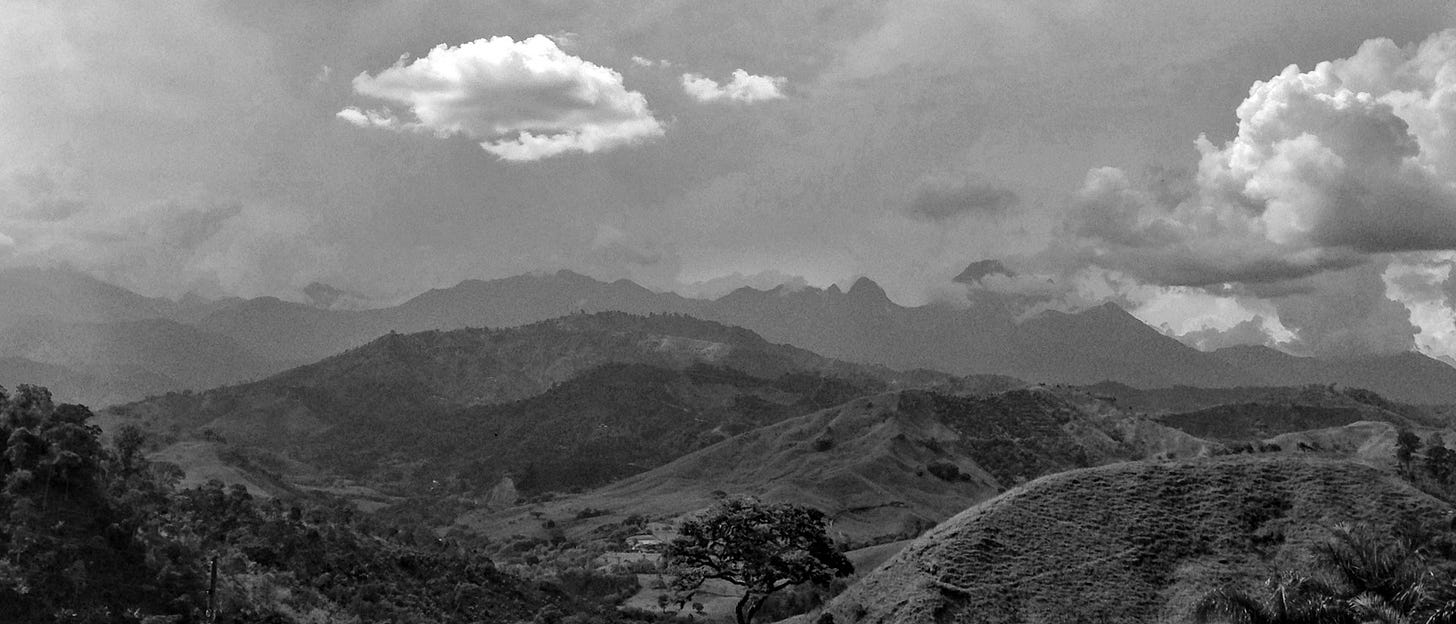Coffee News Roundup: Week Ending January 28th
This week, climate change could reduce viable coffee-growing land by more than 50% by 2050, Italy seeks Unesco heritage status for espresso, and more Starbucks stores file to unionize.
Welcome to another Saturday, and another Coffee News Roundup. Let’s begin.
Research Says Climate Change To Erase More Than 50% Of Suitable Coffee Land By 2050 - Via Daily Coffee News
New research from Switzerland has found that climate change could cut the most viable coffee-growing land by more than 50% by 2050.
While this might not be hugely surprising to any long-term readers of the Roundup—we’ve covered stories on how Colombia’s growing regions will shift, and how producers in Ethiopia are being encouraged to move uphill in search of more suitable conditions—it’s still alarming. 2050 is not that far away, after all.
Land in the world’s five largest coffee-producing countries with the “highest suitability” for growing coffee will decrease by more than 50%, the study found, while land currently classified as “moderately suitable” will decrease by more than 30%.
“Negative changes in suitability will mainly be caused by increasing mean annual temperatures,” the study’s authors wrote. While most current growing regions will see a decrease in suitable land, some areas will benefit (if you can call it that) from these shifting conditions, “due to increasing minimum temperatures of the coldest month.” These areas include Southern Brazil, Uruguay, Argentina, Chile, USA, East Africa, South Africa, China, India, and New Zealand.
Of course, these studies don’t necessarily consider the human cost of such shifts. As Daily Coffee News notes, “little research has been paid to social and economic implications for the world’s smallholder coffee producers, who might be more likely to switch crops than to uproot their families and move to more suitable farmland.”
Italy Seeks Unesco Heritage Status For Espresso Coffee - Via The Guardian
Falconry. Yoga. Peking opera. Dry stone walling. Reggae. Unesco’s list of Intangible Cultural Heritage runs to over 600 worldwide “cultural practices and expressions of intangible heritage”, including both Turkish and Arabic coffee.
Italy, drunk with power after successfully having Neapolitan pizza included on the list in 2017, is now lobbying to have espresso added as well.
Claiming that it is “much more than a simple drink,” but rather an “authentic ritual and an expression of our sociality that distinguishes us around the world,” Italy’s application is also a way to celebrate the country’s social interactions after two pandemic-restricted years.
According to the Italian Espresso Institute, more than 90% of Italians drink an espresso each day—and, as reported last week, they’re not happy with possible price rises on the horizon.
Costa Coffee Named UK’s Favourite Coffee Shop - Via Global Coffee Report
“In a survey of more than 4000 British consumers, Costa Coffee has taken the top spot for the 12th consecutive year to be named the United Kingdom’s favourite coffee shop.”
Is it, though?
Obviously this is just a press release dressed up as a news story. And obviously (although it’s not specified) they mean favourite chain coffee shop. And they only asked 4,000 people their opinion. So it’s not exactly open-and-shut, but still apparently a lot of Britons enjoy themselves a Costa.
The question “What is your favourite branded coffee shop chain?” is also tricky, because can you name more than three?
According to Allegra’s Project Cafe UK 2022, the UK’s branded coffee market has recovered to 87% of its pre-pandemic market value. That corresponds to similar data from the US, where foot traffic to chain coffee shops increased 7.5% during the pandemic. Clearly, people still want their fairly forgettable—if reliable—lattes.
More Headlines
Coffee Prices To Stumble After Surging 30% In 2021
High Density Coffee Conference Returns March 10 with 50 Speakers
Jamaica Seeks Bigger Share of EU Coffee Market
Ethiopia’s First Half Coffee Exports Rose 90% to $578m, EBC Says
The Week In Coffee Starbucks Unionizing
They just keep coming. Multiple Starbucks cafes in Georgia, Pennsylvania, and Michigan have all filed to hold union elections this week, bringing to the total to 39 stores across the United States.
Meanwhile, more instances of heavy-handed tactics from management during negotiations, with the company sending texts to workers in Meza, Arizona, that, among other things, warn them not to “potentially impact your current benefits” by voting for a union. As More Perfect Union notes, “Under the National Labor Relations Act, it is a violation of federal law to ‘threaten employees with...loss of benefits...if they support a union.’”
The Week In Corporate Coffeewashing
This week’s first story concerned the huge expected loss of coffee-growing lands by the year 2050. So I thought it might be interesting to look at some of the biggest coffee corporations’ climate pledges—are they doing enough? Are they doing anything at all? As it turns out, 2050 seems to be a popular date, and “net zero” a popular term.
Let’s begin with Starbucks. According to the company, they want to become “resource positive—giving back more than we take from the planet.” They say they’re donating 100 million disease-resistant coffee trees by 2025, and have “set targets to cut our carbon, water, and waste footprints in half by 2030.” They have also joined Transform to Net Zero, which has the rather lofty goal of “accelerat[ing] the transition to a net zero global economy no later than 2050.”
What about Nestlé? They also claim to be able to reach next zero by 2050 by halving greenhouse gas emissions by 2030, after which point they’ll, uh, “offset any remaining emissions through high-quality carbon removal projects or innovation.” There’s also some “supporting regenerative agriculture” and “advocating for change” stuff. Nespresso, meanwhile, has similar goals—”scaling and accelerating our efforts across the full scope of GHG emissions from farm to end-of-life” in order to reach net-zero by 2050.
Restaurant Brands International (RBI), which owns Tim Horton’s, continues the 2050 net-zero goal, as has McDonald’s, while Costa says they’ll do so “ahead of the Government’s 2050 target.”
Is 2050 just an arbitrary date? At the least, it’s “too little, too late” according to the Climate Crisis Advisory Group.
Then there’s JDE Peet’s, with a market cap of $14.91 billion and sales of $7.89 billion in 2020, without a climate strategy as of yet. The company’s website says: “We have committed to a science-based target through the Science Based Target initiative (SBTi) and will release our climate strategy once the target validation process has been completed by SBTi.”
A credit rating analysis by S&P Global in 2021, however, mentions that although the company acknowledges the risks from climate change, “it is unclear what steps JDEP and the wider industry are taking to address this systemic risk.” Also, “Though we acknowledge that the risk of child or forced labor occurring in the coffee supply chain is high, we see this reputational risk as having a little effect on the business, at present.” Yikes.
What does all this mean? Not sure, but the concept of “net zero” is not one that’s hugely popular among climate scientists or many think tanks—the Brookings Institute calls such pledges “powerful, visible, simple… and utterly insufficient.” 2050, meanwhile, feels just close enough to sound urgent and timely, but far away enough that these companies don’t really have to do anything anytime soon.
Is Coffee Good For You?
Not much this week, but you can read an interesting article in GQ about caffeine and its potential downsides, if that’s your thing.
What To Read
Taza Presidencial: Bolivia’s Producer-Led Quality Coffee Resurgence by Sandra Elisa Loofbourow
Until next week, drink good coffee.






